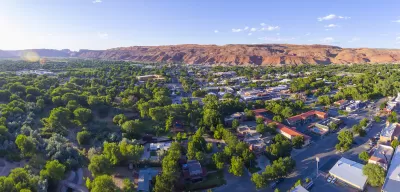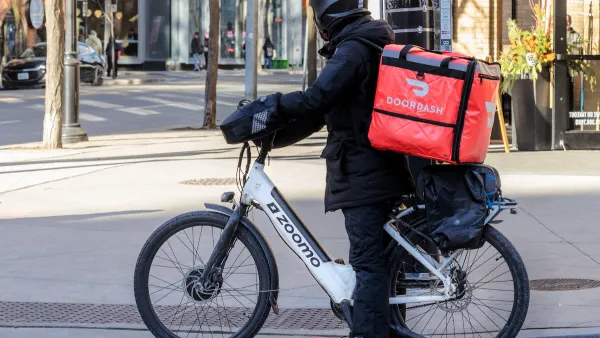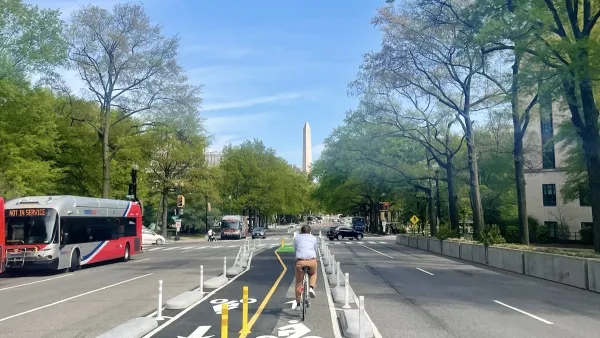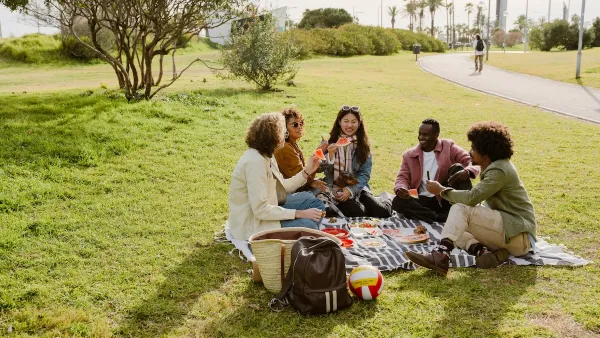Moab adopted a Sustainability Action Plan to map out goals and strategies for the pursuit of sustainability, including the reduction of greenhouse gas emissions. The plan was approved by the Moab City Council on December 12, 2023.

Located in eastern Utah, Moab is probably best known as the gateway to the massive red rock formations in Arches National Park. However, as reported in this article by Alison Harford, Moab should also be recognized for its efforts to advance sustainability, as exemplified by the recent adoption of its Sustainability Action Plan. This plan represents the culmination of an eight-month planning effort and reflects the community’s interests and needs for clean air, clean water, and a livable environment. The planning process included public outreach activities to inform the development of the priorities, a survey to collect public input, an open house, and numerous technical advisory committee meetings.
The plan lays out ambitious goals, such as achieving an 80 percent reduction in greenhouse gas emissions by 2040 and achieving a 100 percent renewable electricity supply community-wide by 2030. The city also wants to gain certification to the International Dark Skies Association in 2024, and plans to create a “Transportation Electrification Plan” to identify “policies and strategies to prepare for projected electric vehicle adoption and charging demand.”
Moab has made steady progress in its sustainability efforts. In 2004, the city became the nation’s first EPA Green Power Community by exceeding a minimum threshold of voluntary green power purchases. By 2009, the city the 2020 Vision: A Sustainable Moab Plan which includes goals for water conservation, water reuse, energy efficiency, sustainable construction, retrofitting for sustainability, and community awareness. Since then, Moab has continued to pursue sustainability in its initiatives and goals. In 2017, Moab committed to 100% renewable electricity by 2032 and an 80% reduction in greenhouse gases by 2040. In 2019, the city moved the date to 2030 to source 100% renewable electricity and become an anchor community for the Utah 100 Communities program enabled by House Bill 411.
FULL STORY: City adopts Sustainability Action Plan

Maui's Vacation Rental Debate Turns Ugly
Verbal attacks, misinformation campaigns and fistfights plague a high-stakes debate to convert thousands of vacation rentals into long-term housing.

Planetizen Federal Action Tracker
A weekly monitor of how Trump’s orders and actions are impacting planners and planning in America.

In Urban Planning, AI Prompting Could be the New Design Thinking
Creativity has long been key to great urban design. What if we see AI as our new creative partner?

King County Supportive Housing Program Offers Hope for Unhoused Residents
The county is taking a ‘Housing First’ approach that prioritizes getting people into housing, then offering wraparound supportive services.

Researchers Use AI to Get Clearer Picture of US Housing
Analysts are using artificial intelligence to supercharge their research by allowing them to comb through data faster. Though these AI tools can be error prone, they save time and housing researchers are optimistic about the future.

Making Shared Micromobility More Inclusive
Cities and shared mobility system operators can do more to include people with disabilities in planning and operations, per a new report.
Urban Design for Planners 1: Software Tools
This six-course series explores essential urban design concepts using open source software and equips planners with the tools they need to participate fully in the urban design process.
Planning for Universal Design
Learn the tools for implementing Universal Design in planning regulations.
planning NEXT
Appalachian Highlands Housing Partners
Mpact (founded as Rail~Volution)
City of Camden Redevelopment Agency
City of Astoria
City of Portland
City of Laramie





























